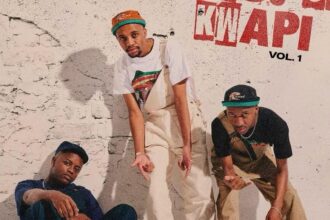Lady Du On What Excites Her About Amapiano. Just like Gqom, another popular South African electronic subgenre, Amapiano was discredited by many top artists and mainstream media at first. However, there are few open-minded DJs who changed the fate of the subgenre, although thee isn’t any gatekeeper in the genre. Now, most of the tracks that have topped the charts this past year incorporate Amapiano. DJ and fans of amapiano made it clear that the genre is here to stay for the long run and is poised to leave a long-lasting impact on South African culture.
Lady Du revealed why she loves amapiano. “At the moment, amapiano has no gatekeepers — and that excites me! We’re literally running the genre as we see fit. Nobody is dictating anything to us! There is none of that old-school way of doing things where you need to know someone in power for your song to be played on radio. At some point, my song was not playing on a particular radio station but now it’s sitting at number one on that very radio station. How amazing?,” said Lady Du.
Lady Du broke into fame during the phase at which amapiano was famous. “It’s funny that I popped because of amapiano. When “Superstar” was released, I had been working with JazziQ for a while. We have a few deep house tracks that we released together! My dad and JazziQ’s uncle are business partners so he’s more of a brother to me. “Superstar” was actually the last song I had planned to do,” she added.
Anyone with the means of making amapiano can actually do it. It’s not even about the status or the name at the moment, but about the song that will get people dancing and talking about. Now in 2020, Amapiano is extending its reach beyond South Africa and topping the charts in countries around the continent. Even Nigerians in Nigeria have already started exploring the sound, ditching their original Afrobeats, to eventually give people what they want.










